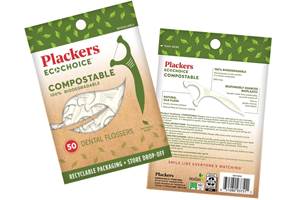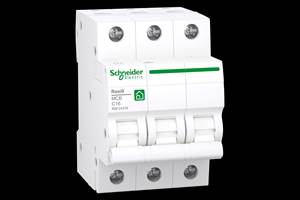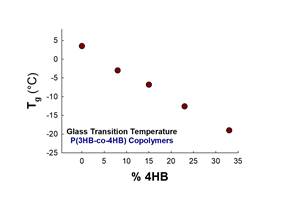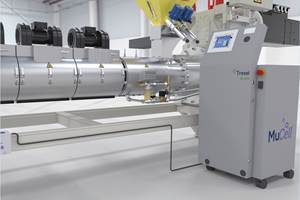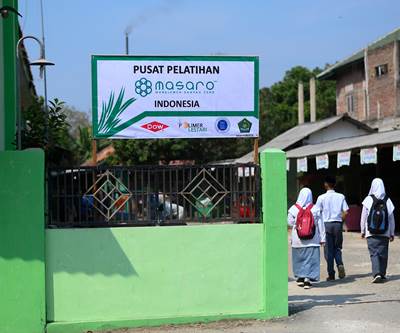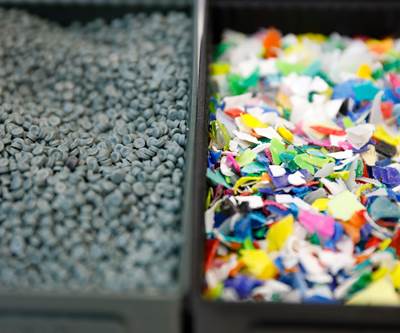Dow Launches New Project to Reduce Plastic Waste in Nigeria
Adwoa Coleman, Dow’s Africa sustainability and advocacy manager for packaging and specialty plastics, talks about the importance of this recycling project.
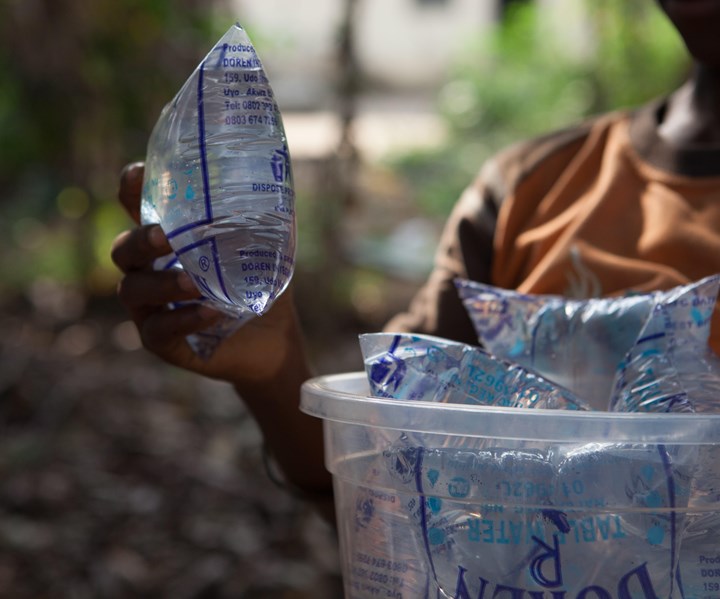
This partnership will specifically recycle water sachets through a pilot program.
Dow’s Project ReflexNG is an initiative that aims to collect and recycle plastic waste in Lagos, Nigeria. This pilot project is aligned to Dow’s global STOP THE WASTE sustainability target, which will enable the collection, reuse or recycling of one million metric tons of plastic globally by 2030.
The project in partnership with Omnik, RecylePoints and the Lagos Business School Sustainability Centre, will specifically recycle water sachets through a pilot program, designed to show that they can be collected and recycled to be utilized in new, quality packaging applications. The project aims to divert 600 metric tons of sachet water pouches (approximately 300 million sachets), which otherwise would have ended up in the environment or landfill, into recycling applications while promoting education to engrain sustainability into a select group of small and medium waste entrepreneurs. The pilot is set up to enable a viable business case for the use of recyclate (resins made from recycled plastics) in non-food primary packaging applications.
I checked in with Adwoa Coleman, Dow’s Africa sustainability and advocacy manager for packaging and specialty plastics, to learn more about this project.
How did the concept for Project ReflexNG come together? Can you talk about why this initiative is targeting recycling water sachets in this area?
In Nigeria, approximately 70% of the population relies on single-use plastic sachets for their daily water needs in the absence of access to drinking water. Dow is supporting the provision of clean water through the supply of raw materials for production of lightweight plastic sachets. However, we see many people throwing these sachets away after they’ve consumed the water, as they do not realize the value plastic waste has beyond this use. In addition, Nigeria’s waste management infrastructure is limited, and although there is an informal waste collection economy (where people make a living collecting, sorting, recycling and selling materials that end up as waste), the system favors rigid packaging or bottles and disregards low weight water sachets and other flexibles, because waste pickers are paid by weight.
At Dow, we realized that we could make a difference and drive behavioral change by showing that plastic is too valuable to be thrown away. In partnership with Omnik, RecylePoints and the Lagos Business School Sustainability Centre, Project ReflexNG will enable us to tap into the fantastic entrepreneurial part of Nigeria’s culture and values by incentivizing collection of these plastic water sachets specifically. By doing so, we can reuse the plastic to create scaled applications and increase that value even more over time, while keeping it out of the natural environment where it doesn’t belong.
Can you talk about the importance of launching this project in Lagos, Nigeria?
Within Africa, Nigeria is now the third largest plastics consumer behind Egypt and South Africa. Overall, the amount of plastic waste has increased by 44% between 2007 and 2017. It’s a growing issue and unfortunately, the infrastructure is not growing at the same pace—only half of plastic waste is collected and around 10% is recycled. Dow recognizes that it is not enough to be at the top of the value chain as a supplier and not help take care of the problem that comes after consumers have used products made from those raw materials.
Launching Project ReflexNG is a way for us to raise consumer awareness of the value of plastic and advance a circular economy for plastics in Nigeria, where plastic is designed and produced with sustainability in mind and then collected and used as a new resource at the end of its life. This allows its long-term value to be realized. By also establishing a government buy-back center where waste pickers can bring empty sachets, it is also an opportunity for us to enhance the livelihoods of hard-working Nigerian waste pickers.
What are the key goals of this pilot?
Our ultimate ambition is to show the viability of collecting and reusing single-use water pouches that are such a fundamental part of daily life for millions of Nigerians, which we hope will also show that plastic has a value throughout its lifecycle and should never be lost to waste.
We want to create a steady stream of waste material to enable recycling lines to run more consistently, which will incentivize waste pickers and create new end uses for this valuable material to try to close the loop on plastics. Our goal is for 600 MT plastic waste to be recovered and for 200 registered waste pickers to be enabled for each new waste stream, receiving a steady income. Beyond the pilot phase, which will run until February 2021, we will scale up the project to recover even more quantities of flexible packaging with potential for replication across the region.
What’s more, through our partnership with Lagos Business School’s Sustainability Centre, which is enabling us to help build the capacity of a group of social entrepreneurs who have businesses in the waste management space, our goal is to ensure that the education and materials these entrepreneurs receive through the process will result in long-term sustainable collection for flexible packaging, specifically water sachets.
What type of applications do you see this recyclate being used for?
The pilot program is set up to enable a viable business case for the use of recyclate, which are resins made from recycled plastics, in non-food primary packaging applications, such as powdered detergent sachets. As we continue to scale up the project, we anticipate more opportunities for further using this recyclate for more applications.
Why is it important for a company like Dow to be involved in these recycling projects?
Although waste management will never be our core business, as a plastics manufacturer we recognize we can’t simply put products on the market and not take responsibility for ensuring the right systems are in place to manage them at the end of their lives. However, we also recognize that we can’t solve the waste challenge on our own. That is why we are working with our partners to show plastic waste can and should be sorted, collected, reprocessed and made into valuable new materials. It’s also why we are working collaboratively across the value chain, with NGOs, government and civic institutions, to encourage continued investment in recycling systems and bring innovative, new solutions to countries like Nigeria.
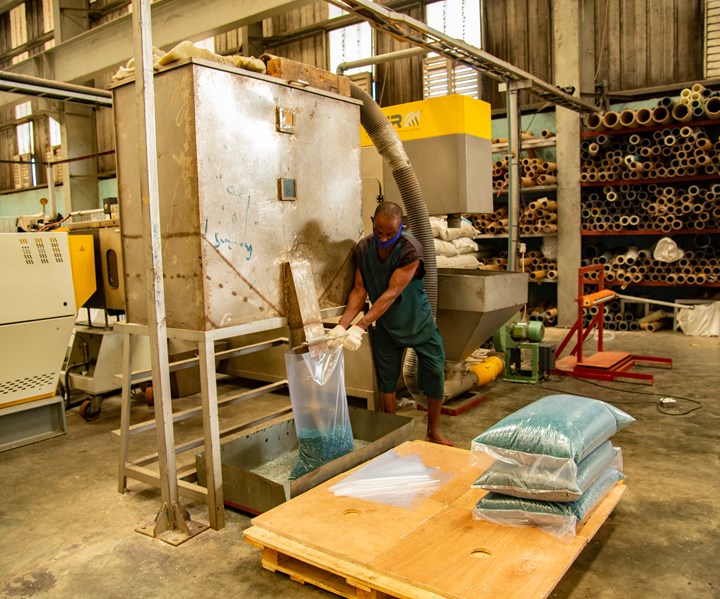
The pilot is set up to enable a viable business case for the use of recyclate in non-food primary packaging applications.
Related Content
How to Optimize Injection Molding of PHA and PHA/PLA Blends
Here are processing guidelines aimed at both getting the PHA resin into the process without degrading it, and reducing residence time at melt temperatures.
Read MoreResins & Additives for Sustainability in Vehicles, Electronics, Packaging & Medical
Material suppliers have been stepping up with resins and additives for the ‘circular economy,’ ranging from mechanically or chemically recycled to biobased content.
Read MoreFilm Extrusion: Boost Mechanical Properties and Rate of Composting by Blending Amorphous PHA into PLA
A unique amorphous PHA has been shown to enhance the mechanical performance and accelerate the biodegradation of other compostable polymers PLA in blown film.
Read MoreFoam-Core Multilayer Blow Molding: How It’s Done
Learn here how to take advantage of new lightweighting and recycle utilization opportunities in consumer packaging, thanks to a collaboration of leaders in microcellular foaming and multilayer head design.
Read MoreRead Next
Dow's Project MASARO Seeks to Create Blueprint for Zero-Waste Communities
Project MASARO provides communities in Indonesia with a closed loop waste management system, which processes many types of waste into valuable products, like fuel and fertilizer, that can be used by members of the community.
Read MoreWhat Is the Circular Economy?
In this video from K 2019, hear NOVA Chemicals, TOMRA, Covestro, Rapid Granulator and SABIC each discuss plastics’ role in the circular economy.
Read MoreHow Polymer Melts in Single-Screw Extruders
Understanding how polymer melts in a single-screw extruder could help you optimize your screw design to eliminate defect-causing solid polymer fragments.
Read More

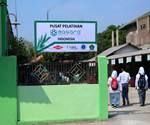
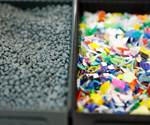






.png;maxWidth=300;quality=90)













